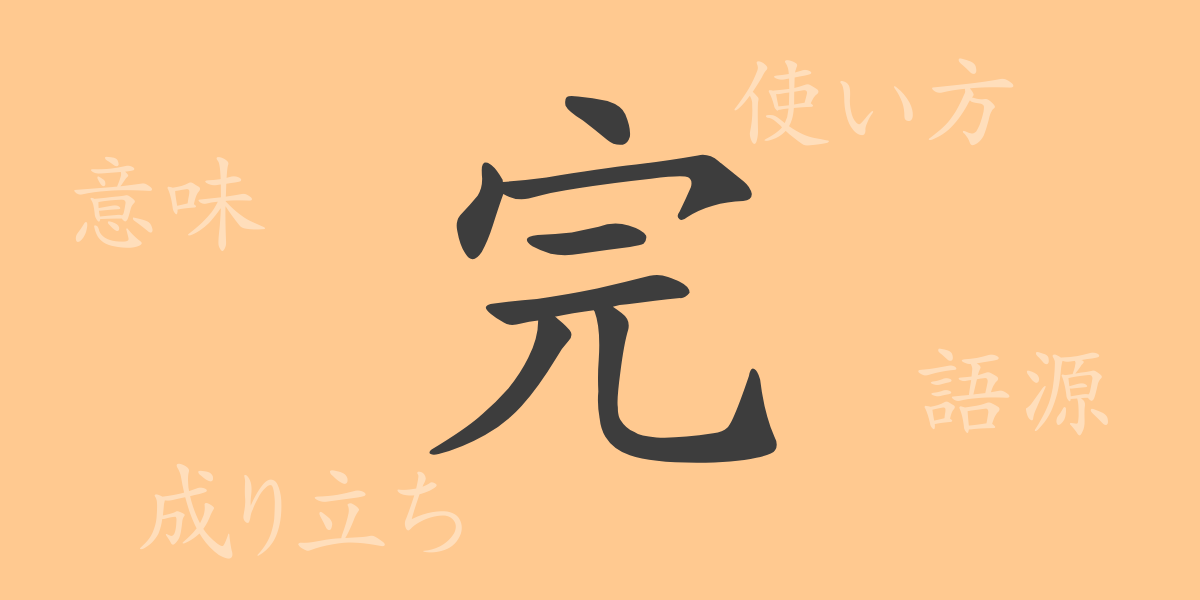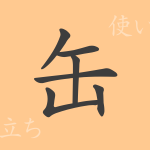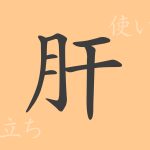The richness of the Japanese language is reflected in its complex and delicate writing system. The meaning imbued in a single Kanji character can express a wide range of expressions through its shape and sound. In this article, we spotlight the common Japanese Kanji character ‘完’ (Kan), delving into its etymology, modern usage, and even its appearance in idioms and proverbs, to unveil its full scope. Understanding the power of this single character can deepen your comprehension of the Japanese language.
Origins of ‘完’ (Kan)
The Kanji character ‘完’ (Kan) originates from ancient Chinese oracle bone script. It originally derived from a pictograph that represented a house or a wall, and evolved to signify something that is filled inside, that is, a ‘complete state’. This character has retained this meaning up to the present day, representing completeness or wholeness.
Meaning and Usage of ‘完’ (Kan)
The Kanji ‘完’ (Kan) signifies ‘complete’, indicating a state where nothing is missing and everything is in place. When used in words like ‘完成’ (Kannsei, completion) or ‘完了’ (Kannryou, completion), it conveys the nuance that something has come to an end with all necessary parts accounted for. In everyday life, it is often used to indicate that a job or project has been carried out to the end.
Reading, Stroke Count, and Radical of ‘完’ (Kan)
The Kanji ‘完’ (Kan) is a character with a relatively simple shape and reading, yet it holds a deep meaning.
- Reading: The on’yomi (Chinese reading) is ‘かん’ (kan), and there is no particular kun’yomi (Japanese reading).
- Stroke Count: It consists of 7 strokes.
- Radical: The radical is ‘宀’ ( ukanmuri).
Idioms, Phrases, and Proverbs Using ‘完’ (Kan) and Their Meanings
There are numerous idioms, phrases, and proverbs that include ‘完’ (Kan), each illustrating the richness of expression in the Japanese language. Here are some examples:
- 完璧 (Kannpeki): Perfect, with no flaws whatsoever.
- 完了 (Kannryou): Something has ended, and everything is in order.
- 完成 (Kannsei): The state of having been made or built to the end.
- 完売 (Kannbai): All products have been sold out.
- 完全無欠 (Kannzennmuketu): Flawless and in a state of perfection.
Summary on ‘完’ (Kan)
The Kanji ‘完’ (Kan) plays an important role in Japanese communication through its evolved meaning from its form and its diverse modern usages. In a culture that seeks perfection, the ‘completed state’ symbolized by ‘完’ (Kan) is emblematic of achieving goals. The completeness and finality this character signifies not only convey the power of words but also serve as an essential tool for expressing the outcomes and accomplishments in our daily lives.

























